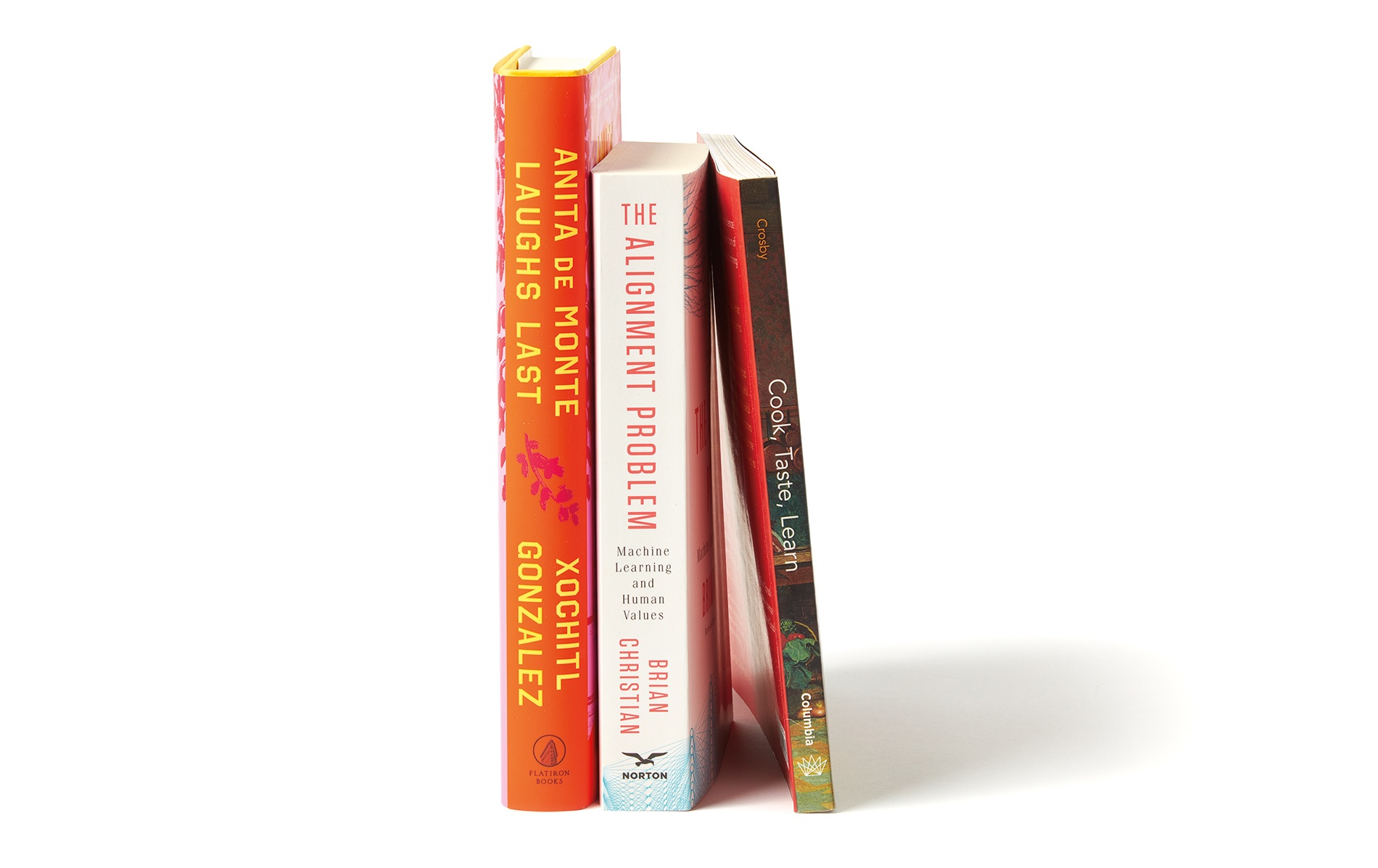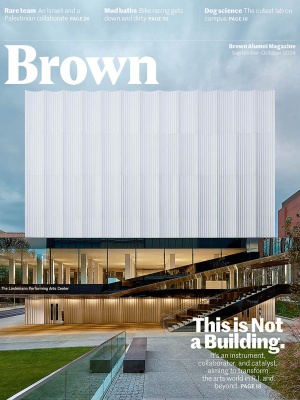Cook, Taste, Learn: How The Evolution of Science Transformed the Art of Cooking by Guy Crosby PhD ’69 (Columbia University Press)
In this brief but expansive volume Crosby toggles between culinary history and food science, giving readers a taste of how cooking has progressed from prehistoric times to now, sprinkling in curious facts—for instance, that fried foods first appeared more than 3,000 years ago, as Egyptian cooks began using palm oil, and that garlic doesn’t taste like anything until its cells are crushed. There are recipes for dishes like white bean and roast chicken chili and spare ribs with hoisin barbecue sauce. This is a fine, easily digestible read for home cooks who are wondering what exactly might be happening on their stovetops.
The Alignment Problem: Machine Learning and Human Values by Brian Christian ’06 (W.W. Norton)
Though it first appeared in 2020, Christian’s book recently made a New York Times list of top artificial intelligence reads and with good reason. This extensively reported, character-driven work centers on the daunting question of how to align human values—which fluctuate with time, culture and context—with the ways machines learn and behave. Christian calls it the “sorcerer’s apprentice” problem; AI may deliver results that are exactly what we asked for but not exactly what we wanted. Christian is ultimately optimistic about research and policy efforts to ensure humanity can navigate these narrows.
Anita de Monte Laughs Last by Xochitl Gonzalez ’99 (Flatiron Books)
In this follow-up to Olga Dies Dreaming, it’s the fall of 1985 when we meet Anita de Monte, a rising Cuban-born New York City conceptual artist who will soon be dead. Jumping thirteen years ahead we’re introduced to Raquel Toro, a Puerto Rican art history concentrator from Brooklyn who is getting ready to write her senior thesis but still feels like an outsider at Brown. Raquel becomes involved with an older art student and discovers Anita’s story (which shadows the real life of artist Ana Mendieta). Complications follow in this vivid look at relationships, class, and who gets to be remembered in the art world.
ALUMNI NONFICTION
After the Foods: The Search for Resilience in Ellicot City by Ken Conca ’82 (Oxford University Press)
Bequeath: Essays by Melora Wolff ’84 (LSU Press)
Dismantling Mass Incarceration by Premal Dharia ’00 and James Forman Jr. ’88 and Maria Hawilo (Macmillan)
Lies I Taught in Medical School:How Conventional Medicine is Making You Sicker and What You Can Do to Save Your Life by Robert Lufkin ’75 (BenBella Books)
Technology, Culture and Change by Ian Malcolm Taplin ’86 PhD (Cambridge Scholars Publishing)
CHILDREN’S
Christmas Forever: Escape to the North Pole by Elysa Dutton ’89 (Penguin Random House)
Hanukkah Hippity-Hop by Barbara Weiss Kimmel ’83 (Kar-Ben Publishing)
INDEPENDENTLY
Us Fools by Nora Lange ’10






